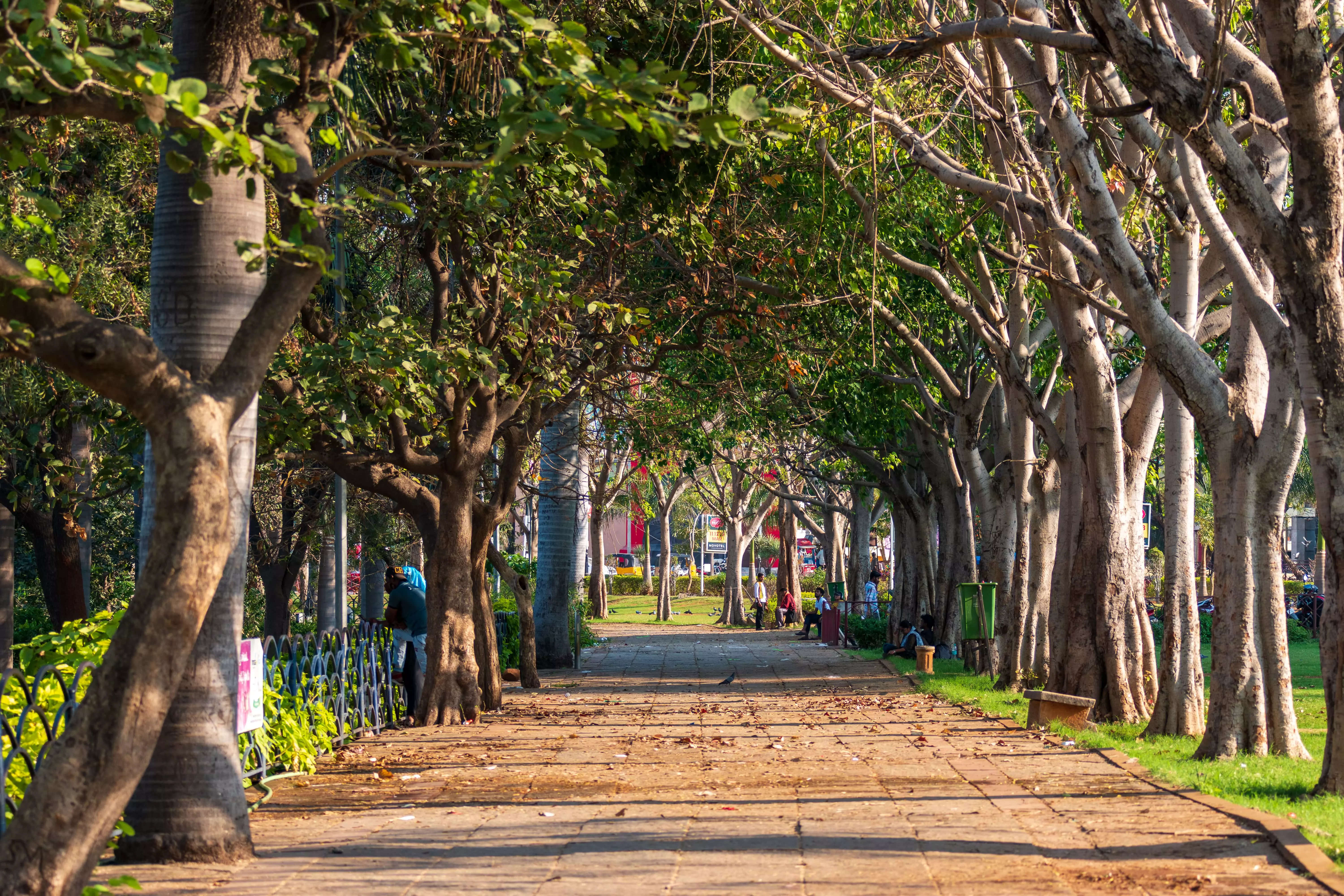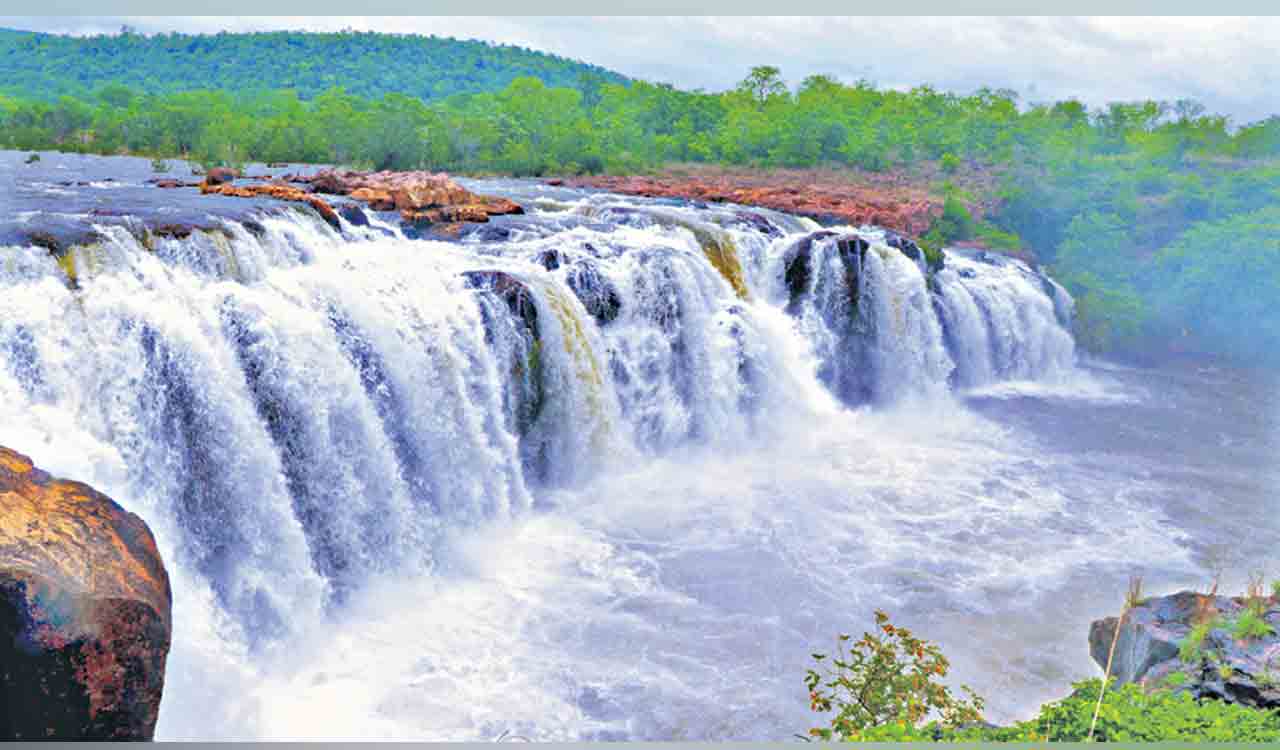Unveiling Telangana’s Untouched Treasures: A Journey Through Eco-tourism
Telangana, a state rich in history and culture, is rapidly emerging as a haven for eco-tourism enthusiasts. Beyond its bustling cities and historical monuments, the region boasts a diverse landscape of dense forests, cascading waterfalls, serene lakes, and unique wildlife, offering a compelling invitation to explore its natural wonders. This article delves into the burgeoning eco-tourism scene in Telangana, highlighting its key attractions, conservation efforts, and the sustainable practices driving its growth.
Telangana’s commitment to preserving its natural heritage is evident in its numerous protected areas. These sanctuaries and reserves provide refuge to diverse flora and fauna, offering visitors a chance to reconnect with nature.

Kawal Tiger Reserve: A Sanctuary for the Majestic Striped Cat
Kawal Tiger Reserve, located in the northern part of the state, is a crucial habitat for the Royal Bengal Tiger. This sprawling reserve, encompassing deciduous forests, grasslands, and water bodies, is a biodiversity hotspot. Visitors can embark on thrilling jeep safaris, guided by experienced naturalists, to witness the elusive tiger, along with other wildlife like leopards, deer, and wild dogs. The reserve’s commitment to community-based tourism ensures that local tribes benefit from conservation efforts, fostering a symbiotic relationship between nature and people.
Amrabad Tiger Reserve: A Rugged Wilderness Experience
Amrabad Tiger Reserve, another significant tiger habitat in Telangana, offers a more rugged and adventurous experience. Situated in the Nallamala Hills, this reserve is characterized by its rocky terrain, deep gorges, and dense forests. Birdwatchers will be delighted by the diverse avian population, while nature enthusiasts can explore the numerous trekking trails that wind through the reserve. The Chenchu tribal community, indigenous to the area, plays a vital role in conservation efforts, sharing their traditional knowledge of the forest with visitors.

Eturunagaram Wildlife Sanctuary: A Verdant Paradise
Eturunagaram Wildlife Sanctuary, located in the Warangal district, is a haven of lush greenery and diverse wildlife. This sanctuary, crisscrossed by streams and rivers, is home to a variety of animals, including spotted deer, nilgai, and sloth bears. Visitors can explore the sanctuary on foot or by jeep, immersing themselves in the tranquility of the forest. The sanctuary’s eco-tourism initiatives focus on promoting responsible travel and supporting local communities.
Shivaram Wildlife Sanctuary: Crocodile Conservation
Shivaram Wildlife Sanctuary, situated along the banks of the Godavari River, is renowned for its crocodile population. This sanctuary, characterized by its rocky terrain and riverine ecosystem, provides a crucial habitat for the endangered mugger crocodile. Visitors can take boat safaris along the river, observing these fascinating reptiles in their natural environment. The sanctuary also supports the conservation of other aquatic species, promoting the health of the Godavari River ecosystem.

Telangana’s landscape is dotted with numerous lakes and waterfalls, offering picturesque settings for eco-tourism activities.
Pakhal Lake: A Tranquil Retreat
Pakhal Lake, a man-made reservoir surrounded by hills and forests, is a popular destination for nature lovers. The lake offers opportunities for boating, fishing, and birdwatching. The nearby Pakhal Wildlife Sanctuary adds to the appeal, providing a chance to explore the region’s diverse flora and fauna. The serene ambiance of the lake makes it an ideal spot for relaxation and rejuvenation.
Kuntala Waterfall: A Cascading Spectacle
Kuntala Waterfall, the highest waterfall in Telangana, is a breathtaking sight. The waterfall, cascading down rocky cliffs amidst lush greenery, creates a mesmerizing spectacle. Visitors can trek to the base of the waterfall, enjoying the refreshing spray and the scenic beauty of the surroundings. The waterfall’s natural beauty attracts numerous tourists, highlighting the region’s eco-tourism potential.
Bogatha Waterfall: Telangana’s Niagara
Bogatha Waterfall, often referred to as Telangana’s Niagara, is another stunning natural attraction. This wide and powerful waterfall, cascading down several tiers, creates a thunderous roar. The surrounding forest provides a serene setting for picnics and nature walks. The waterfall’s accessibility and scenic beauty make it a popular destination for both local and international tourists.
Manjira Reservoir: Birdwatcher’s Delight
Manjira Reservoir, a major water source in the region, is a haven for birdwatchers. This reservoir, surrounded by grasslands and wetlands, attracts a variety of migratory and resident birds. Visitors can observe numerous species of waterfowl, including flamingos, pelicans, and storks. The reservoir’s eco-tourism initiatives focus on promoting birdwatching and raising awareness about wetland conservation.
Telangana’s diverse topography offers ample opportunities for trekking and adventure activities.
Nallamala Hills: A Trekker’s Paradise
The Nallamala Hills, a range of hills spanning across Telangana and Andhra Pradesh, are a paradise for trekkers. These hills, characterized by their rocky terrain, dense forests, and deep gorges, offer numerous trekking trails of varying difficulty levels. The trails lead to scenic viewpoints, waterfalls, and ancient temples, providing a blend of natural beauty and cultural heritage.
Ananthagiri Hills: A Scenic Escape
Ananthagiri Hills, located near Vikarabad, are a popular weekend getaway for nature lovers. These hills, known for their scenic beauty and pleasant climate, offer opportunities for trekking, camping, and birdwatching. The lush greenery and serene ambiance of the hills make them an ideal destination for relaxation and rejuvenation.
Bhongir Fort Trek: A Historical Adventure
Bhongir Fort, a historic fort perched atop a monolithic rock, offers a unique trekking experience. The trek to the fort, though challenging, rewards visitors with panoramic views of the surrounding landscape. The fort’s historical significance and scenic beauty make it a popular destination for both history buffs and adventure enthusiasts.
Telangana’s eco-tourism initiatives emphasize sustainable practices and community involvement.
Community-Based Tourism: Empowering Local Tribes
Community-based tourism plays a crucial role in the development of eco-tourism in Telangana. Local tribal communities, such as the Chenchus and Gonds, are actively involved in conservation efforts and tourism activities. They share their traditional knowledge of the forest, guide visitors on nature trails, and offer insights into their unique culture. This approach ensures that local communities benefit from tourism, fostering a sense of ownership and responsibility towards conservation.
Eco-Friendly Accommodation: Minimizing Environmental Impact
Eco-friendly accommodation options, such as tented camps and homestays, are gaining popularity in Telangana. These accommodations minimize their environmental impact by using sustainable materials, conserving water and energy, and promoting waste reduction. They also provide visitors with an authentic experience of living in harmony with nature.
Promoting Responsible Travel: Educating Tourists
Promoting responsible travel is essential for the long-term sustainability of eco-tourism. Tourists are educated about the importance of respecting wildlife, minimizing waste, and supporting local communities. Information centers and guided tours provide insights into the region’s ecology and conservation efforts.
Conservation Efforts: Protecting Biodiversity
Telangana’s government and various organizations are actively involved in conservation efforts to protect the region’s biodiversity. These efforts include habitat restoration, wildlife monitoring, and awareness campaigns. The involvement of local communities in conservation initiatives ensures the long-term success of these efforts.
Telangana’s burgeoning eco-tourism scene offers a unique blend of natural beauty, cultural heritage, and adventure. The state’s commitment to sustainable practices and community involvement ensures that eco-tourism benefits both the environment and local communities. As more tourists discover the hidden gems of Telangana, the region is poised to become a leading eco-tourism destination in India. By embracing responsible travel and supporting conservation efforts, visitors can contribute to the preservation of Telangana’s natural treasures for generations to come.



